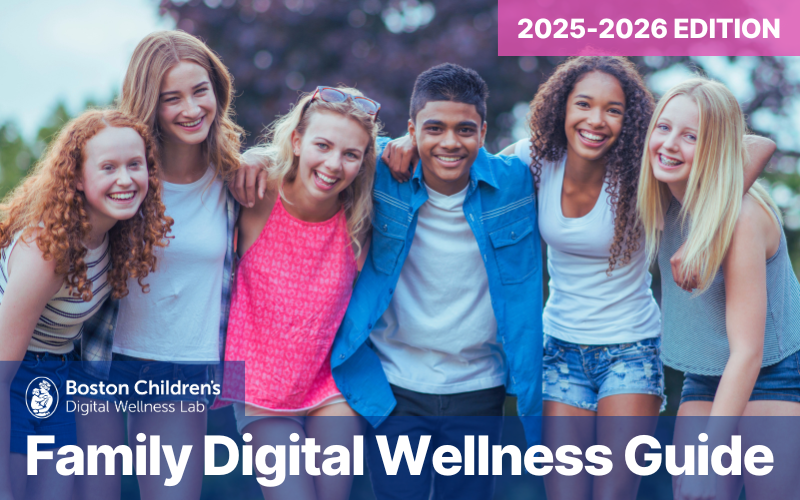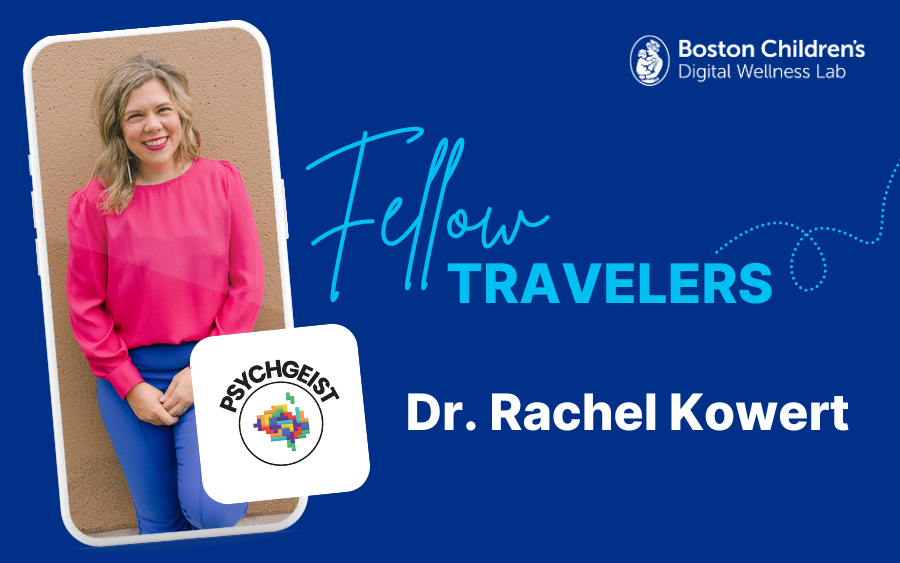Dr. Rachel Kowert
Founder, Psychgeist
What’s your organization’s mission, and what’s your area of focus?
Psychgeist is a multimedia content production studio focused on the intersections of science, video games, and pop culture. It includes:
- Psychgeist YouTube (video series)
- Psychgeist of Pop Culture (book series)
- Most Recent Save (podcast)
The core of my work is scientific communication: bridging the gap between “ivory tower” academic research and the general public. I achieve this through various formats, each tailored to specific audiences while remaining accessible to all. For instance, the Psychgeist YouTube channel focuses on the science behind games – their use and effects. The newsletter, linked to the podcast, is designed for game developers and industry professionals, providing updates on current research. Finally, the book series takes a pop-culture approach, illustrating classic psychology and media studies concepts within familiar fandoms. This allows fans to gain new insights into their interests while simultaneously serving as an engaging introduction to psychological principles, like understanding resilience through relatable pop culture examples.
What led you to this work?
As a child, I envisioned a career as a therapist. However, my first day pursuing my Master’s degree revealed that traditional therapy wasn’t the right everyday path for me. Interestingly, during my time working in therapy, a recurring concern among parents was the impact of video games on their children. After hearing this from multiple families, I felt compelled to reflect on my own video game play, questioning if my gaming habits might be hindering me in some way, especially given the genuine worry expressed by these parents. This sparked a deeper curiosity within me: what is the true impact of gaming, beyond parental anxieties?
Driven by the lack of research I encountered while exploring parental concerns about gaming, I shifted my focus to academia, earning my PhD from the University of York (UK). My research specifically investigated the social impact of online gaming on offline socialization. I discovered that much of the existing discourse was rooted in “moral panic,” and the social differences attributed to gaming were often overstated. Following my PostDoc in Germany, I joined Take This as their inaugural research director. In this role, I lead initiatives to further evidence-based understanding of video game usage and effects, with a particular emphasis on highlighting the often-overlooked positive benefits they can offer.
What have you learned in the course of doing this work about young people’s wellness while engaging with tech and interactive media?
In my research, I’ve found that the positive aspects of gaming generally outweigh the negative. Parents understandably care deeply about their children’s well-being, but much of the readily available information paints an overly alarming picture of gaming, making it seem inherently dangerous and discouraging engagement. This highlights the critical need for accessible resources for both parents and young people on how to interact with technology safely and responsibly. While the research community acknowledges concerns like misinformation and using technology for avoidance, the extreme assumptions of harm, such as violent video games directly causing real-world violence, are not grounded in research despite being disproportionately amplified in the media.
What guidance or advice do you have for parents and other caregivers to help kids to build and maintain their wellness when engaging with digital media and technology?
My recent collaboration with Nurture involves creating empirically-validated resources and guides for parents navigating screen time. My initial work focused on the concept of a “digital diet,” drawing significantly from Amy Orben’s research. This approach reframes games and all digital media as tools, emphasizing that the way and purpose of use are more critical than the amount of time spent. Many parents feel guilty in the diet framework as they see digital media as the “chocolate” of their child’s day. However, by breaking it down, we can see that digital engagement also includes the “meat and potatoes” and “a lot of veggies” – valuable and beneficial activities, not all dessert. So if we start to think about it that way, I think this perspective can be incredibly helpful in alleviating parental guilt.
Furthermore, engaging directly with your child about their online activities is important. Even if you don’t share their enthusiasm for a particular game, showing interest by asking questions, sitting with them, or even playing alongside them for a short time can be the most impactful action a parent can take. Those ten minutes of shared experience will likely provide far more insight and alleviate anxieties more effectively than any article I could recommend.
How would you change or design technology and/or media to be healthier for kids across the developmental span?
I believe we’re entering a promising era of innovation, with a growing understanding of how to intentionally design digital spaces to amplify their benefits and mitigate potential harms, such as social risks and deceptive monetization tactics like microtransactions and loot boxes.
The Thriving in Games group’s official release this year of their open-access Digital Thriving Playbook for game developers is a significant step. This resource offers evidence-based design choices that research has demonstrated lead to more positive player outcomes. I’m optimistic that we’ll increasingly see this forward-thinking approach manifest in the design of the digital spaces being created today.
Is there anything else you’d like to share?
If you’re curious about how video games shape us (and vice versa), please visit Psychgeist YouTube. The channel features essays, in-depth investigations, and guest lectures on the science of video games, their uses, effects, potential dangers, and unique contributions to daily life.
We know that no one person, organization, or company can successfully address the challenge alone, so it’s imperative that we collaborate to design and maintain a healthier digital experience for all young people and their families. Our Fellow Travelers blog series features colleagues from around the world who focus on digital wellness from a different perspective than the Digital Wellness Lab, enabling us to share expertise in key areas of digital wellness that we don’t explore as deeply.
Here at the Lab, we welcome different viewpoints and perspectives. However, the opinions and ideas expressed here do not necessarily represent the views, research, or recommendations of the Digital Wellness Lab, Boston Children’s Hospital, or affiliates.








